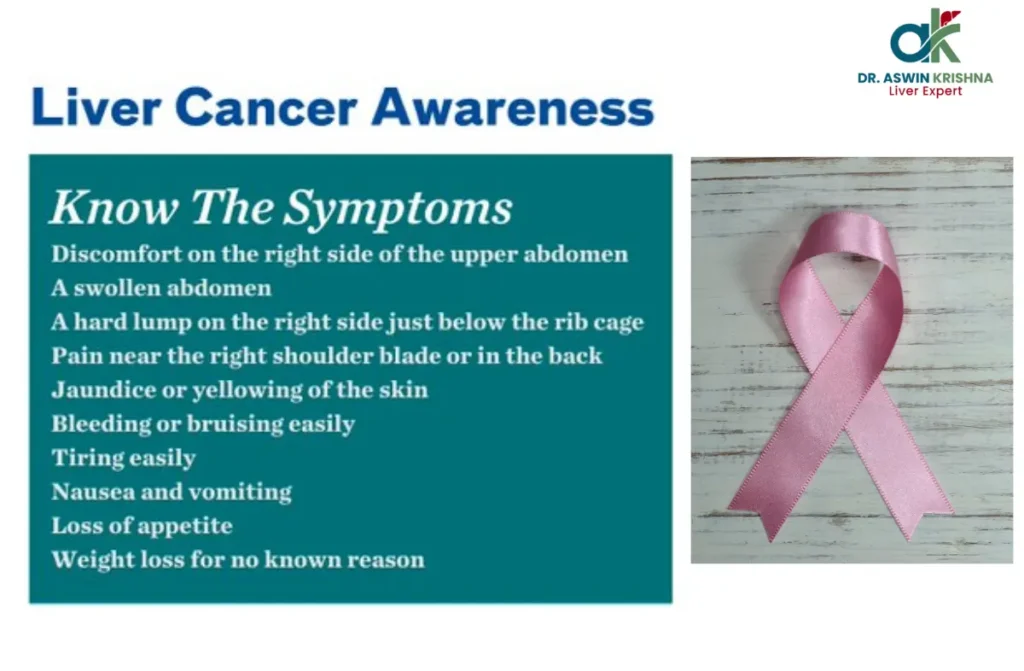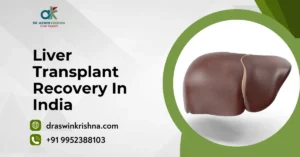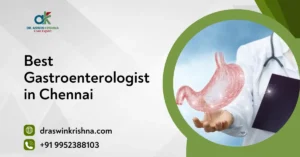Liver cancer, although less common than some other forms of cancer, is a serious and often life-threatening condition. The key to addressing liver cancer lies in awareness—understanding the signs and symptoms, adopting preventive measures, exploring treatment options, and early diagnosis of liver damage. This blog post aims to shed light on liver cancer awareness, emphasizing the importance of early detection and prevention.
Understanding Liver Cancers
Liver cancer is a serious condition that develops when abnormal cells in the liver multiply uncontrollably, forming malignant tumors. It can either originate in the liver (primary liver cancer) or spread from another part of the body (secondary liver cancer). Globally, liver cancer is among the leading causes of cancer-related deaths, highlighting the importance of Liver Cancer Awareness to educate communities and promote early detection.
Understanding the Risk Factors
Recognizing risk factors is central to Liver Cancer Awareness. Chronic hepatitis infections, cirrhosis, alcohol abuse, obesity, and smoking remain leading contributors to liver cancer. During Liver Disease Awareness Month, public health organizations highlight these risks to encourage preventive care. Many individuals underestimate how lifestyle habits, environmental toxins, and genetic predispositions impact their chances of developing cancer. By engaging in Liver Cancer Awareness Day campaigns, communities can better understand and minimize these risks. Educating people during Liver Awareness Day ensures informed decisions about their health and future.
- Chronic Viral Infections: Hepatitis B and C increase the risk of liver cancer significantly, making screening a focus of Liver Cancer Awareness.
- Cirrhosis Development: Alcohol misuse, fatty liver disease, and hepatitis-related scarring create conditions for cancer, addressed during Cirrhosis Awareness Month.
- Lifestyle and Environment: Obesity, processed foods, and toxins like aflatoxins are major risk factors, discussed during Liver Disease Awareness Month.
- Family History: Genetics play a role in susceptibility, which is highlighted during Liver Cancer Awareness Month initiatives.
- Social Education: Campaigns on Liver Cancer Awareness Day empower individuals to modify habits and seek medical help when necessary.

The Link Between Liver Cancer and Hepatitis B
Hepatitis B remains one of the strongest risk factors for liver cancer. Chronic infection leads to continuous liver inflammation, scarring, and eventually cirrhosis, setting the stage for malignant transformation. Worldwide, up to 60% of liver cancer cases are associated with Hepatitis B, making vaccination and early treatment essential preventive tools. Promoting Liver Cancer Awareness ensures communities understand this strong connection.
Highlighting this link during Liver Cancer Awareness Month and Liver Cancer Awareness Day emphasizes how preventive measures like vaccination can reduce cancer incidence. In addition, medical monitoring for individuals with chronic Hepatitis B helps detect abnormalities at an early, more treatable stage.
- Chronic Inflammation: Hepatitis B causes ongoing liver cell damage, which can eventually lead to liver cancer if left untreated.
- Increased Risk: Long-term infection significantly raises the likelihood of hepatocellular carcinoma, a key reason for Liver Cancer Awareness efforts.
- Vaccination as Protection: The Hepatitis B vaccine is a powerful preventive tool, often promoted during Liver Disease Awareness Month.
- Regular Monitoring: Patients with Hepatitis B require routine liver function tests and scans to detect cancer at its earliest stages.
- Global Campaigns: Awareness drives during Liver Awareness Day highlight how Hepatitis B control directly reduces liver cancer cases.
Early Signs & Symptoms of Liver Cancer
Recognising early signs of liver cancer is essential, but the disease can be silent in its initial stages. Symptoms often appear when tumours are advanced or when underlying liver disease causes complications. People with risk factors such as chronic hepatitis B or C, cirrhosis, heavy alcohol use, or metabolic syndrome should be vigilant and consider regular surveillance.
- Persistent abdominal discomfort and fullness: Many patients report a dull ache or discomfort in the right upper abdomen or an unusual sense of fullness after small meals. This symptom can result from a growing mass stretching the liver capsule or adjacent tissues, and should prompt medical evaluation in high-risk individuals.
- Unexplained weight loss and appetite loss: Rapid, unintentional weight loss and decreased appetite are common systemic symptoms associated with liver tumours and metabolic disturbance. When these occur alongside risk factors, they warrant timely assessment, including imaging and liver function tests.
- Jaundice and dark urine: Yellowing of the eyes or skin, pale stools, and dark urine may indicate obstruction of bile flow or impaired liver function caused by tumours. These signs often reflect more advanced disease, but are important red flags for immediate evaluation.
- New-onset or worsening ascites and swelling: Accumulation of fluid in the abdomen (ascites) or swelling of the legs can occur when liver function declines or when tumour involvement disrupts normal circulation. These findings frequently signal progression of liver disease and require prompt medical management.
- Fatigue, weakness, and easy bruising: Generalized fatigue, weakness, and a tendency to bruise easily stem from declining synthetic liver function or systemic effects of cancer; these symptoms impact quality of life and should not be ignored.
- Sudden upper-GI bleeding or anaemia: Tumour-related portal hypertension or coagulopathy can cause bleeding from varices or gastrointestinal sources, presenting as vomiting blood, black stools, or symptomatic anaemia—these are urgent warning signs requiring immediate care.
When is Liver Cancer Awareness Month Observed in India?
Liver Cancer Awareness Month in India is observed in February, aligning with global efforts to increase recognition of liver health and the burden of hepatic cancers. Many health organisations, hospitals, and patient groups use this month to run focused education drives, free screening camps, and community outreach to improve early detection and preventive care. The observance complements specific awareness activities held on designated days — often referred to as Liver cancer Awareness Day — which concentrate attention on screening and patient stories.
- National timing: February is widely used for Liver cancer Awareness Month across India, making it a focal period for coordinated campaigns and publicity efforts that highlight screening, vaccination, and lifestyle prevention measures.
- Day-focused initiatives: During the month, a selected Liver cancer Awareness Day is frequently designated for high-visibility events such as public screening drives and awareness seminars, helping concentrate media coverage and public participation.
- Institutional participation: Medical institutions, NGOs, and liver disease advocacy groups plan workshops and webinars during this month to train primary-care physicians and community health workers in detecting early warning signs and managing risk factors.
Why is Liver Cancer Awareness Month Important?
Liver Cancer Awareness Month plays a critical role in reducing mortality and morbidity by promoting prevention, early detection, and evidence-based care. Raising public and professional awareness helps address modifiable risk factors — such as hepatitis infection, alcohol use, obesity, and aflatoxin exposure — and fosters timely referral to specialists when warning signs appear.
- Promotes prevention and vaccination: Awareness campaigns emphasise hepatitis B vaccination, safe injection practices, and screening for chronic hepatitis B and C — interventions that significantly reduce the long-term risk of liver cancer. These prevention measures are cost-effective and can markedly lower incidence over time.
- Encourages early diagnosis: By educating the public and primary-care providers about surveillance strategies for high-risk groups (for example, people with cirrhosis or chronic viral hepatitis), the month helps increase the chance of detecting tumours at a stage when curative options are feasible. Early-stage detection often translates to substantially better survival outcomes.
- Reduces stigma and supports patients: Public events and patient stories shared during Liver Cancer Awareness Month and on Liver Cancer Awareness Day help reduce stigma, improve psychological support, and connect patients with peer groups and supportive services. This fosters better adherence to treatment and survivorship care plans.
- Drives policy and resource allocation: Concentrated advocacy during Liver Disease Awareness Month can influence public health policy, encourage funding for screening programs, and support the introduction of national guidelines for surveillance and treatment of liver disease.
Face the Facts!
The reality of liver cancer cannot be ignored. It is the sixth most common cancer worldwide and the third leading cause of cancer-related deaths. This makes Liver Cancer Awareness more important than ever. Facts like the strong association between hepatitis infections and cancer development emphasize the need for vigilance. Campaigns during Liver Cancer Awareness Month aim to highlight these realities so communities recognize the urgency.
Cirrhosis, lifestyle factors, and obesity all play roles in elevating risk, making educational outreach during Cirrhosis Awareness Month essential. Facing these facts ensures that individuals understand both the severity of liver cancer and the steps they can take to reduce its impact.
- Global Statistics: Liver cancer causes over 800,000 deaths annually, proving why Liver Cancer Awareness must be prioritized worldwide.
- Hepatitis Connection: Around 60% of cases are linked to Hepatitis B and Hepatitis C, strongly emphasized during Liver Cancer Awareness Day.
- Cirrhosis as a Precursor: Long-term liver damage from cirrhosis often leads to cancer, underlining the purpose of Cirrhosis Awareness Month.
- Lifestyle Risks: Obesity, alcohol misuse, and poor diet significantly increase cancer risk, a fact shared during Liver Awareness Day campaigns.
- Silent Killer: Many cases remain undetected until advanced stages, highlighting the urgent role of Liver Cancer Awareness Month in screening promotion.
What are the Latest Treatments for Liver Cancer?
Treatment of liver cancer has rapidly evolved, combining local therapies, systemic agents, and multidisciplinary approaches tailored to tumour stage and liver function. Modern management seeks to balance tumour control with preservation of liver reserve, and patients are best treated in centres where hepatology, surgical oncology, interventional radiology, and medical oncology collaborate.
- Surgical resection and transplantation: For patients with a single tumour and adequate liver function, surgical removal of the tumour offers the best chance for cure. Liver transplantation is a curative option for selected patients with early-stage tumours and underlying cirrhosis, addressing both the tumour and the diseased organ. Selection criteria and perioperative care are critical to optimize outcomes.
- Locoregional therapies (image-guided treatments): Techniques such as radiofrequency ablation, microwave ablation, transarterial chemoembolisation (TACE), and transarterial radioembolisation (TARE) are used to control tumours that are not suitable for surgery. These image-guided procedures can shrink tumours, bridge patients to transplant, or palliate symptoms while preserving liver tissue.
- Systemic immunotherapy and targeted therapy: Recent advances include immune checkpoint inhibitors and molecular targeted agents that improve survival in advanced liver cancer. Regimens combining immunotherapy with anti-angiogenic targeted drugs have shown meaningful benefit for many patients, extending progression-free and overall survival compared with older treatments. Choice of systemic therapy depends on tumour biology, previous treatments, and patient liver function.
- Precision medicine and biomarkers: Molecular profiling of tumours can identify actionable mutations or pathways that make targeted therapies appropriate for select patients. Research into predictive biomarkers helps personalise treatment plans and avoid ineffective therapies.
- Combination and sequential approaches: Contemporary care often uses combinations—such as locoregional therapy followed by systemic therapy—or sequences that leverage different modalities to maximise tumour control while monitoring liver function closely. Multidisciplinary tumour boards assess the most appropriate sequence for each patient.
- Supportive and palliative care: Alongside active tumour-directed treatments, symptom control, nutritional support, and management of complications such as ascites and hepatic encephalopathy are essential. Early integration of supportive care improves quality of life and helps patients tolerate treatments more effectively.
Treatment Options
Treatment for liver cancer depends on the stage, extent of liver damage, and overall health of the patient. Modern medicine provides multiple options, from surgery to advanced targeted therapies. Liver Cancer Awareness programs often highlight the availability of diverse treatments to give patients hope and guidance. Surgical resection and liver transplantation remain curative for early stages, while ablation, embolization, and systemic therapies help control disease progression.
Campaigns during Liver Cancer Awareness Month and Cirrhosis Awareness Month stress the importance of early detection to maximize treatment effectiveness. New therapies like immunotherapy are transforming the outlook for advanced cases, proving that research and innovation are saving lives.
- Surgical Resection: Effective in early stages when liver function is strong, offering a potential cure for localized tumors.
- Liver Transplantation: Provides both cancer removal and restoration of healthy liver function, emphasized during Liver Cancer Awareness Day.
- Minimally Invasive Therapies: Radiofrequency ablation and chemoembolization target tumors directly while sparing healthy liver tissue.
- Systemic Treatments: Targeted drugs and immunotherapies are advancing care for patients with late-stage disease.
- Awareness Role: Educational initiatives during Liver Awareness Day and Liver Disease Awareness Month stress the importance of timely treatment decisions.
Prevention is the Best Protection
Prevention is the most effective tool against liver cancer. Vaccination against Hepatitis B, maintaining a healthy lifestyle, and regular screenings are emphasized in Liver Cancer Awareness campaigns. Liver Cancer Awareness Month highlights that early preventive action can drastically reduce cancer incidence. Healthy diets, safe alcohol limits, and active living are also reinforced during Liver Awareness Day. By spreading information through Liver Disease Awareness Month and Cirrhosis Awareness Month, communities can fight the disease before it develops. Prevention strategies are not just medical but also educational, shaping future generations to live healthier lives.
- Hepatitis B Vaccination: Immunization is a powerful preventive measure, often emphasized during Liver Cancer Awareness Day events.
- Healthy Lifestyle Choices: Balanced nutrition, weight control, and exercise reduce obesity-related risks, highlighted during Liver Cancer Awareness initiatives.
- Limit Alcohol Use: Reducing alcohol consumption minimizes cirrhosis and cancer risk, an important reminder during Cirrhosis Awareness Month.
- Routine Screenings: High-risk individuals benefit from regular liver tests, strongly promoted during Liver Awareness Day and Liver Disease Awareness Month.
- Education Programs: Campaigns during Liver Cancer Awareness Month stress that prevention is more cost-effective and impactful than late treatment.
Get Involved!
Community participation is the backbone of successful Liver Cancer Awareness efforts. By taking part in educational programs, screenings, and fundraising initiatives, individuals and groups can contribute significantly to reducing the global burden of liver cancer. During Liver Disease Awareness Month and Cirrhosis Awareness Month, organizations hold events that focus on prevention, lifestyle modifications, and support for those already affected.
Public involvement is not only about spreading information but also about building compassion, advocacy, and a strong support system for patients. Through awareness campaigns on Liver Awareness Day, the power of collective action becomes visible, creating healthier, more informed communities.
- Support Awareness Campaigns: Attend or organize health talks, social events, or workshops during Liver Cancer Awareness Month to highlight preventive measures.
- Promote Screenings: Encourage high-risk individuals to undergo early check-ups. Regular tests improve survival rates and align with Liver Cancer Awareness goals.
- Advocate for Vaccination: Hepatitis B vaccination programs are a key focus during Liver Awareness Day events to reduce liver cancer risk.
- Fundraising and Research Support: Donating or volunteering for research institutions ensures more treatment advancements, emphasized during Cirrhosis Awareness Month.
- Empower Communities: Awareness drives help families understand risks and take proactive health measures, central to Liver Cancer Awareness Day campaigns.
Conclusion
Liver cancer remains a global health challenge, but awareness, prevention, and modern treatments are making progress possible. Campaigns such as Liver Cancer Awareness, Liver Cancer Awareness Month, and Cirrhosis Awareness Month play a critical role in spreading knowledge and encouraging proactive health measures. By staying informed, engaging in community initiatives, and promoting prevention, societies can reduce the impact of this life-threatening disease and move towards healthier futures.
Read also Liver Transplant Facts.



